Nightingale vs. Enshrouded: Which 2024 co-op survival game is king?
Should you brave the Feywilds or the Shroud?
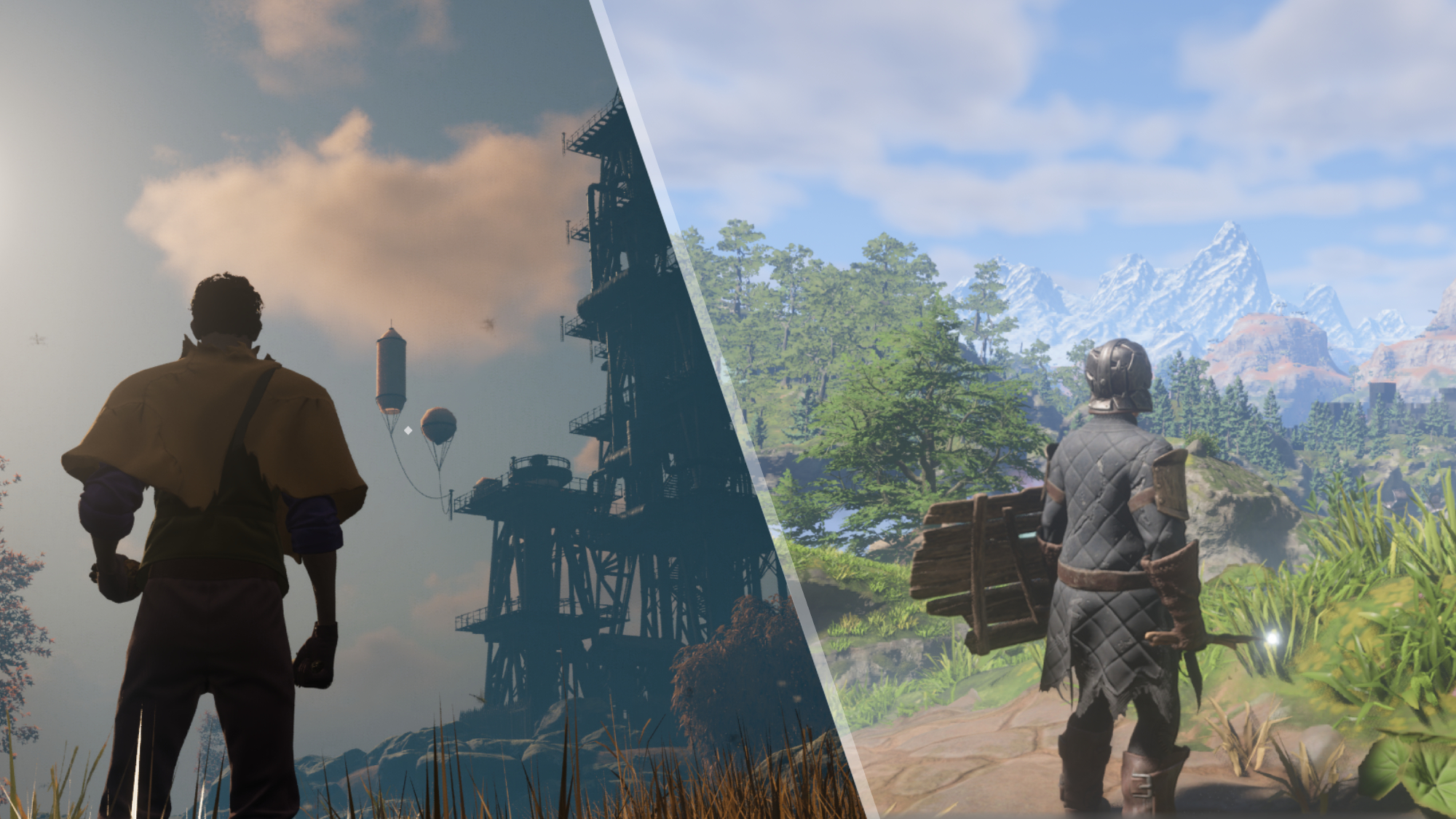
Nightingale vs Enshrouded, which survival game should you take on first? These are two of the most highly-anticipated survival PC games of the year. Enshrouded is one of 2024’s early hits, pulling in 2 million players in the first month of its early access launch (we just did an Enshrouded vs. Valheim face-off). Nightingale entered early access on February 20, but it’s already drawing a lot of comparisons to Enshrouded.
These two titles have a lot in common – they’re the same price, both early access co-op fantasy games, they feature a similar graphics style, and they have similar mechanics. However, there are some big differences you should know before diving into one or the other.
From crafting to co-op, here’s how Nightingale and Enshrouded compare.
Nightingale vs Enshrouded: Price and availability
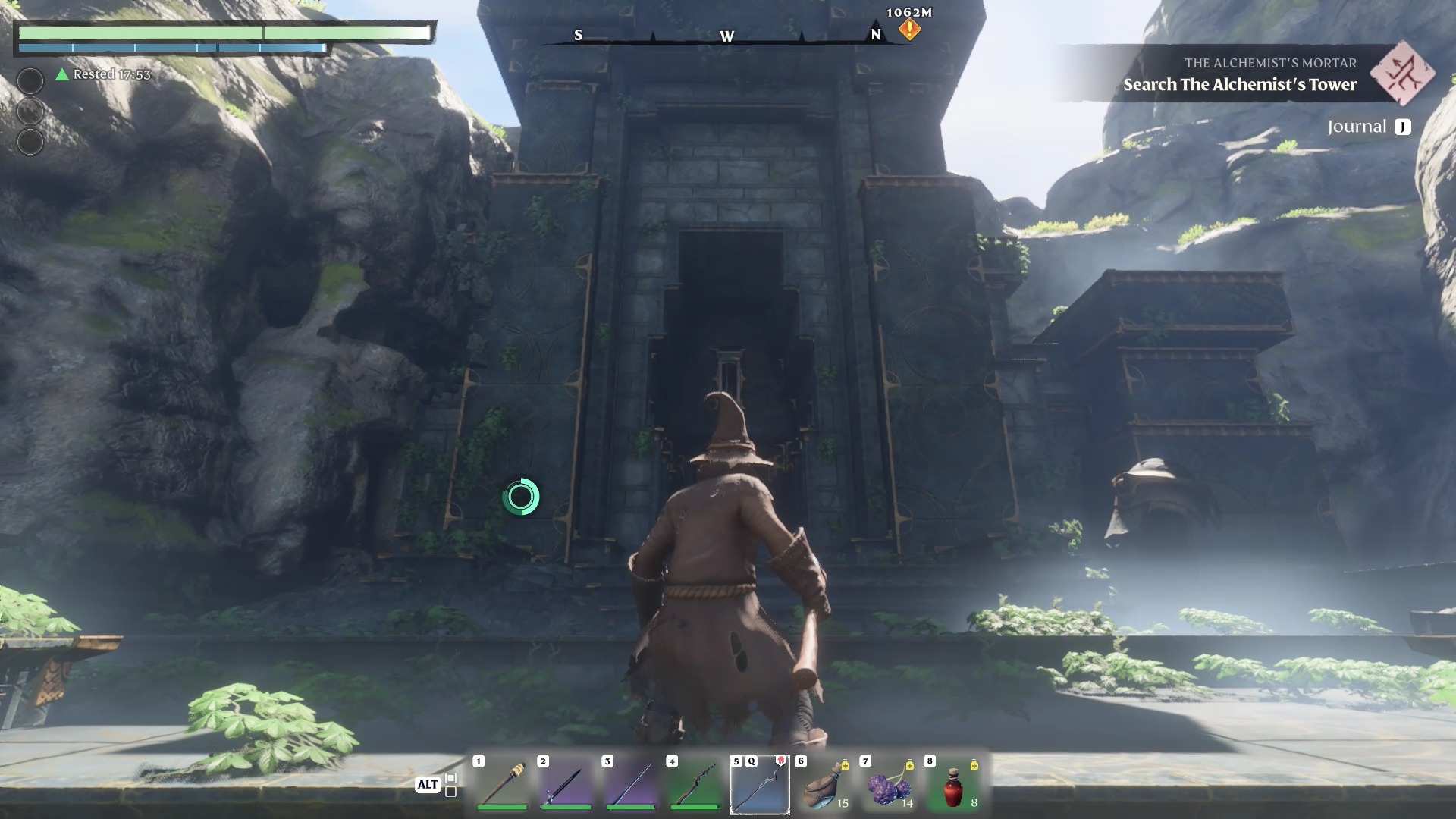
Nightingale and Enshrouded are both early access games, so anyone can play them, but they are still in development. That means there may be bugs and performance hang-ups from time to time as the developers finish polishing each game. Both are priced at $29.99.
Right now, the early access versions of Enshrouded and Nightingale are available on only Windows. However, Enshrouded will be coming to PS5 and Xbox Series X/S in the future.
It’s worth noting that a game’s early access release can last for quite a long time. For example, Valheim has been in early access for about 3 years now. So, expect Enshrouded and Nightingale to both remain in this stage for a while, as well.
Nightingale vs Enshrouded: Exploration
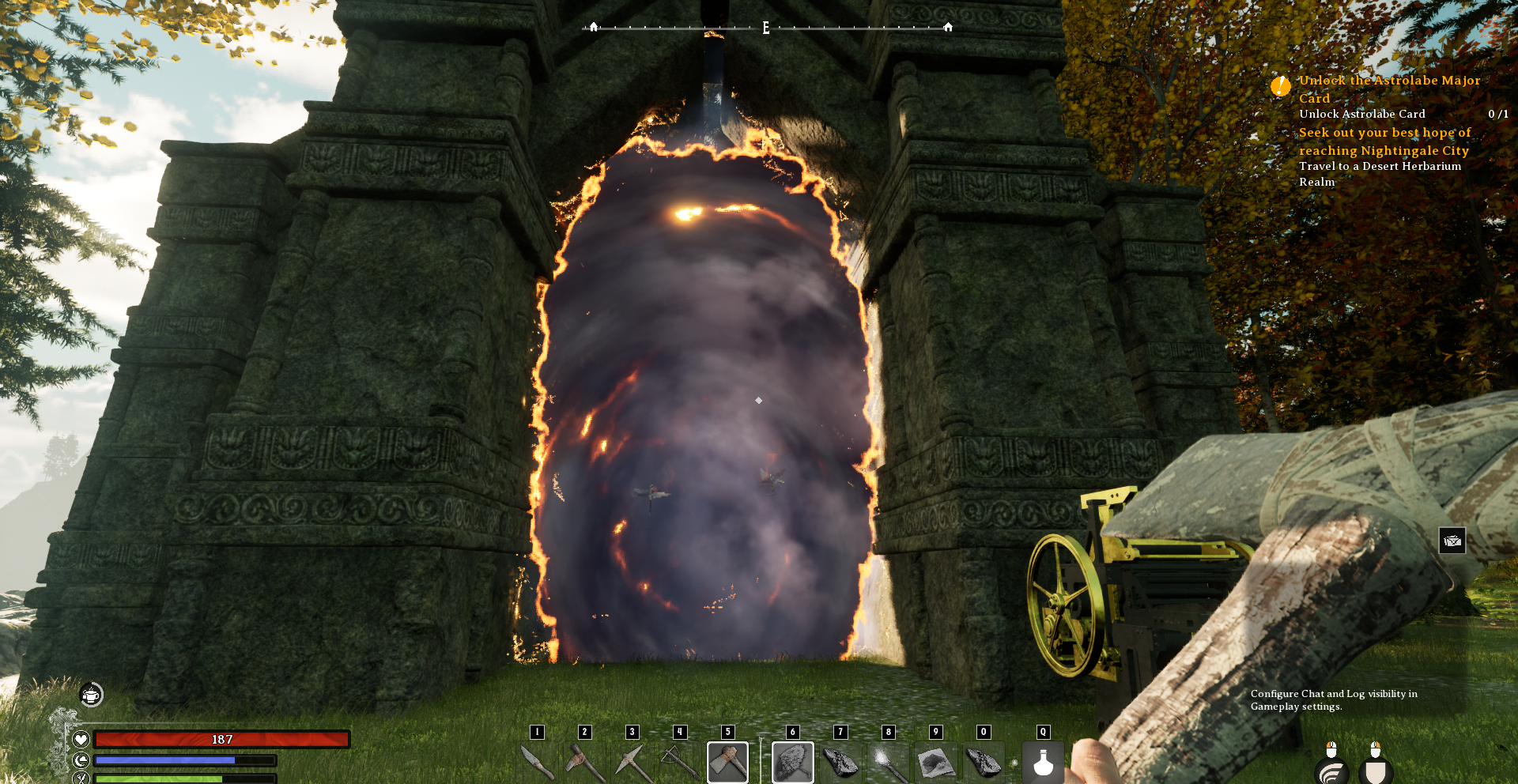
Exploration is one of the biggest differences between Nightingale and Enshrouded. On a technical level, the world generation is completely different. Enshrouded has one map that’s the same in every world. It’s a pretty big map, but everything is in the same location so if you have separate singleplayer and co-op worlds, exploration can get repetitive.
Sign up to receive The Snapshot, a free special dispatch from Laptop Mag, in your inbox.
One of the main mechanics in Nightingale involves using realm cards to generate unique worlds. So, for example, you could walk up to a portal and play a forest biome card and combine it with an antiquarian card to create a portal to a forest realm with a bit of beginner-friendly danger.
Once you’re in that realm, you can stop at a realmic transmuter to play “minor cards,” which make smaller, realm-wide changes. For instance, you can play a utopia card to make it constantly daytime.
A big part of the game loop in Nightingale is visiting a string of new realms, exploring them, solving puzzles, tackling occupation challenges, recruiting companions, and finding lore and treasure. There’s effectively endless opportunity for exploration.
The best way to describe Nightingale’s tone is with the words of a NPC by the name of Aurelio Acevedo Ortega: “these are places where terror and wonder are siblings marching hand-in-hand.” The realms of Nightingale’s Feywild are a mix of beautiful and unsettling, where you can stare out at an otherworldly vista one second then fight off a horde of Lovecraftian monsters the next.
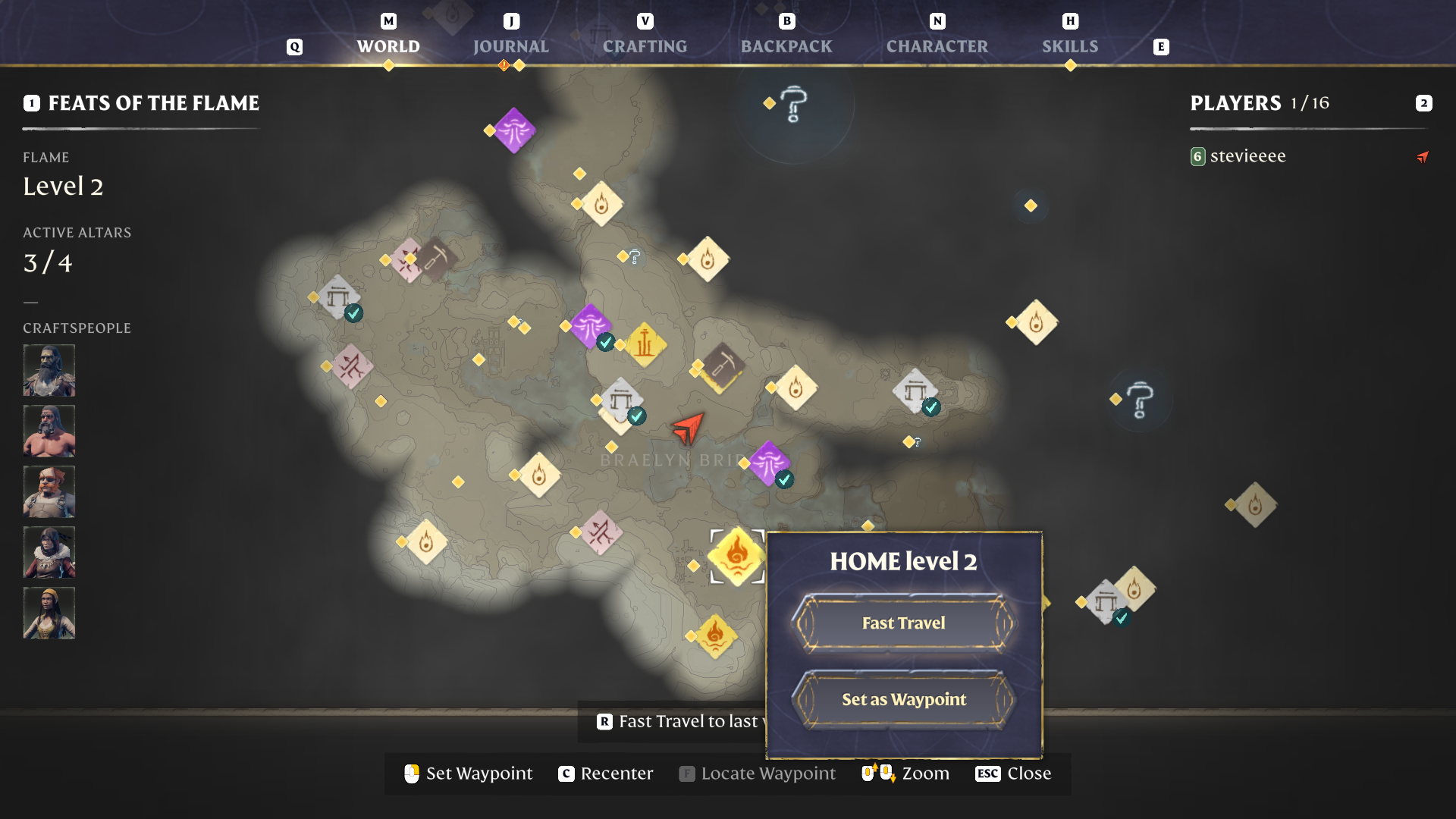
Enshrouded’s map may be large, but it can’t compete with endless procedurally-generated realms. Exploration is fun in both games, but if it’s a top priority for you, you’ll probably get more out of Nightingale. That said, if you want more relaxing exploration, Enshrouded is the way to go since it has an overall brighter, tamer tone outside of dangerous zones like the Shroud.
It’s worth noting there are also some significant fast travel differences. In Nightingale, you can only fast travel to your respite, a single location in your abeyance realm you choose by setting up an estate cairn. In Enshrouded, you can fast travel to a variety of points on the map. You can even set up multiple flame altars, allowing you to fast travel between different bases. Overall, the fast travel mechanics in Enshrouded are more functional and user-friendly.
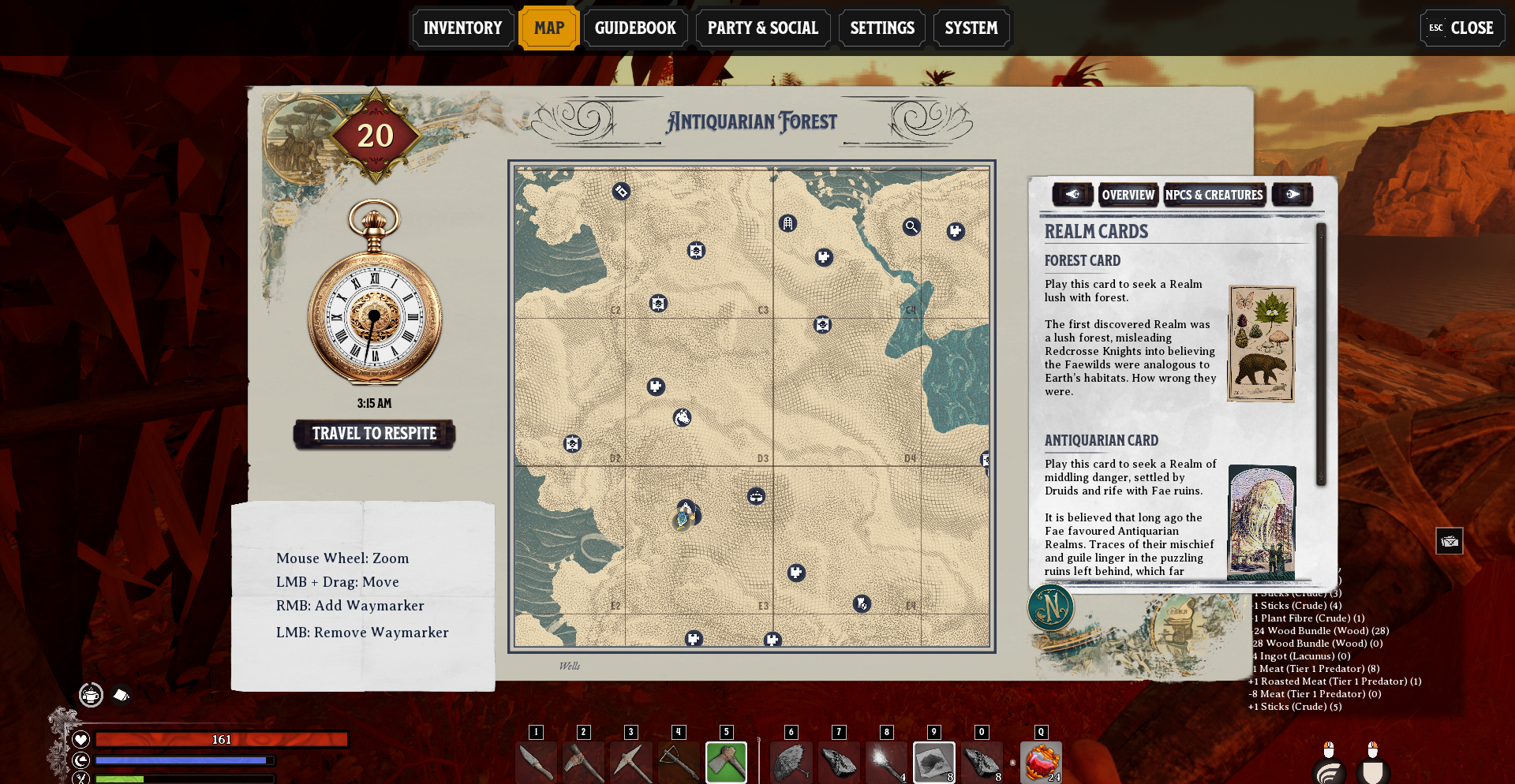
One final note about exploration is carry weight. Enshrouded does not have a carry weight limit, only limited inventory slots. Nightingale is the opposite with dozens of inventory slots but limited carry weight. You start out with a meager 50 kilograms, which goes up in increments of 40 or 50 kilograms when you craft and upgrade a backpack. If you get frustrated with encumbrance, you may want to opt for Enshrouded over Nightingale.
Nightingale vs Enshrouded: NPCs
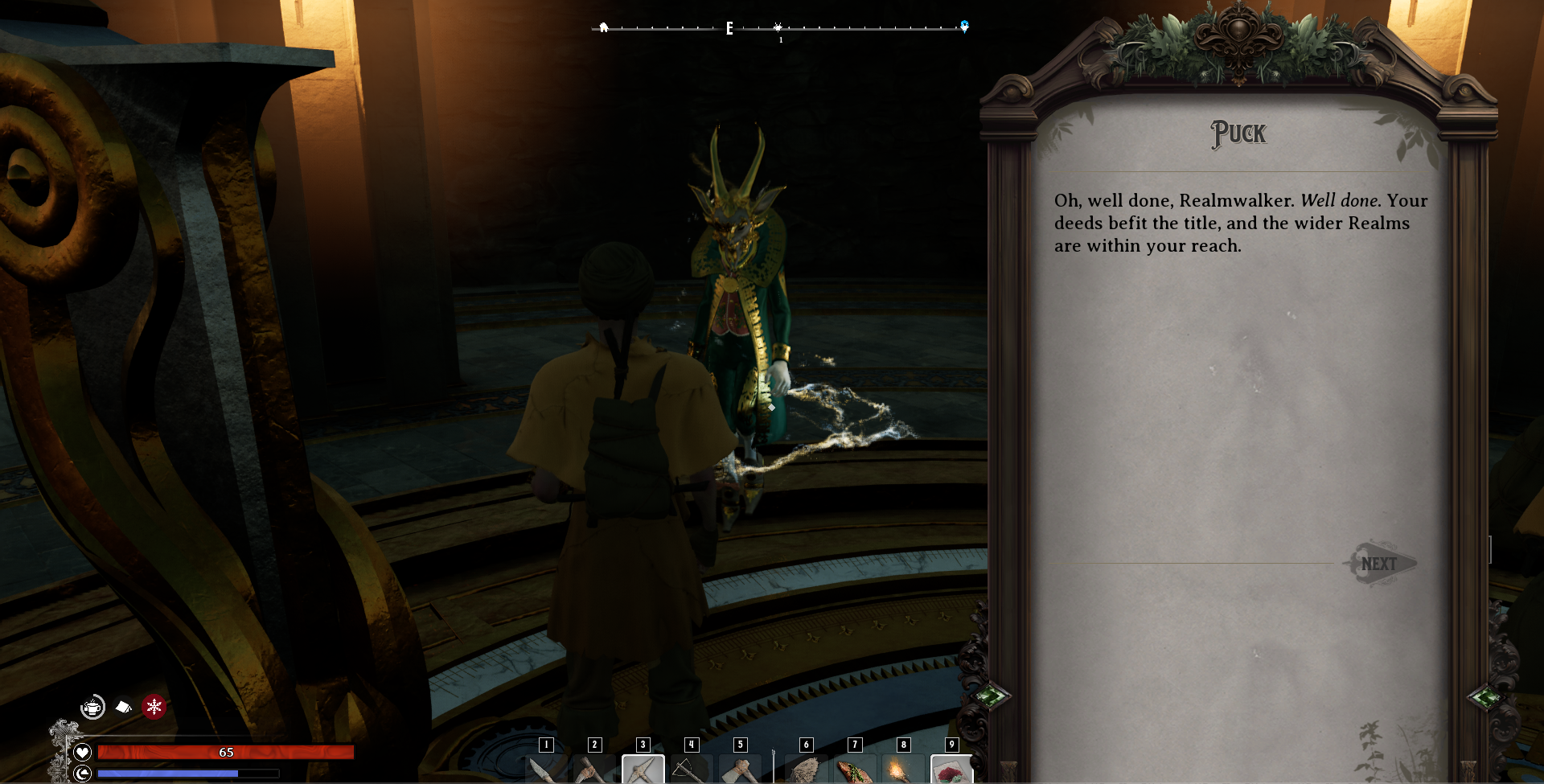
Nightingale and Enshrouded both have recruitable NPCs, but the mechanics for them differ. Enshrouded’s NPCs are linked to base building. You find ancient vaults, awaken the NPCs slumbering inside, then return to your base to build a house or shop where you summon that NPC. Once they are summoned, they stay in that spot, where they craft and give out quests and lore.
Nightingale’s companions work more like those in games such as Skyrim or Starfield. You complete a task to win their favor, then they become available to recruit to your adventuring party. Once you recruit one, they’ll follow you around and help out with certain tasks.
For example, my first NPC companion, Eli, will mine stone and ore for me and help with building and fighting. NPC companions can also revive you in combat. There's also your Fey guide, Puck, who shows up after big milestones. Shakespeare fans may recognize him from the play "A Midsummer Night's Dream."
Nightingale vs Enshrouded: Crafting
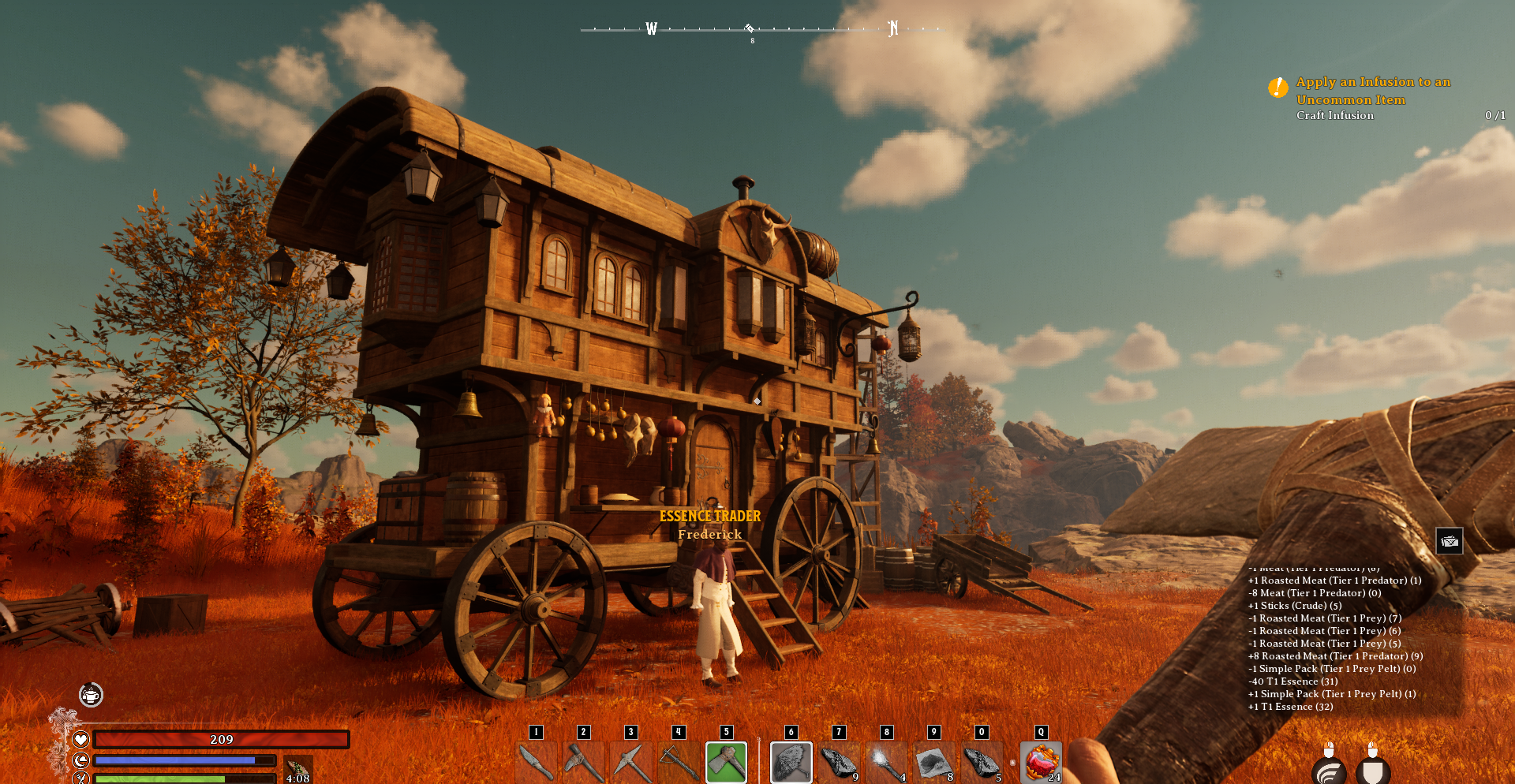
Nightingale and Enshrouded both use recipe-based crafting systems, however the crafting progression is much slower in Nightingale. Construction is a great example. In Enshrouded, a hammer is one of the first things you craft and it unlocks all the basic construction recipes you could want. You simply make stone or wood blocks and some roof tiles to get started.
Nightingale doesn’t require a hammer-like tool for construction, but you do need to unlock individual building recipes. For example, I didn’t get slanted roofs until I bought advanced crude roof recipes from an essence trader on the opposite side of my abeyance realm.
It’s also worth noting that the things you can craft early in Nightingale look nothing like the items shown in the game’s trailers. For the first couple dozen hours, you’ll have crummy looking crude clothing. You might find gunpowder early on, but you won’t be getting a gun for a long while.
In contrast, you can get pretty kitted out within a few hours of playing Enshrouded. Your early gear still looks shoddy compared to later-game gear, but it doesn’t look out of place, either. Plus, you can get wands and staffs very quickly, unlocking powerful ranged weapons that also look cool in combat. The crafting progression in Enshrouded is overall much faster than in Nightingale.
Nightingale vs Enshrouded: Combat
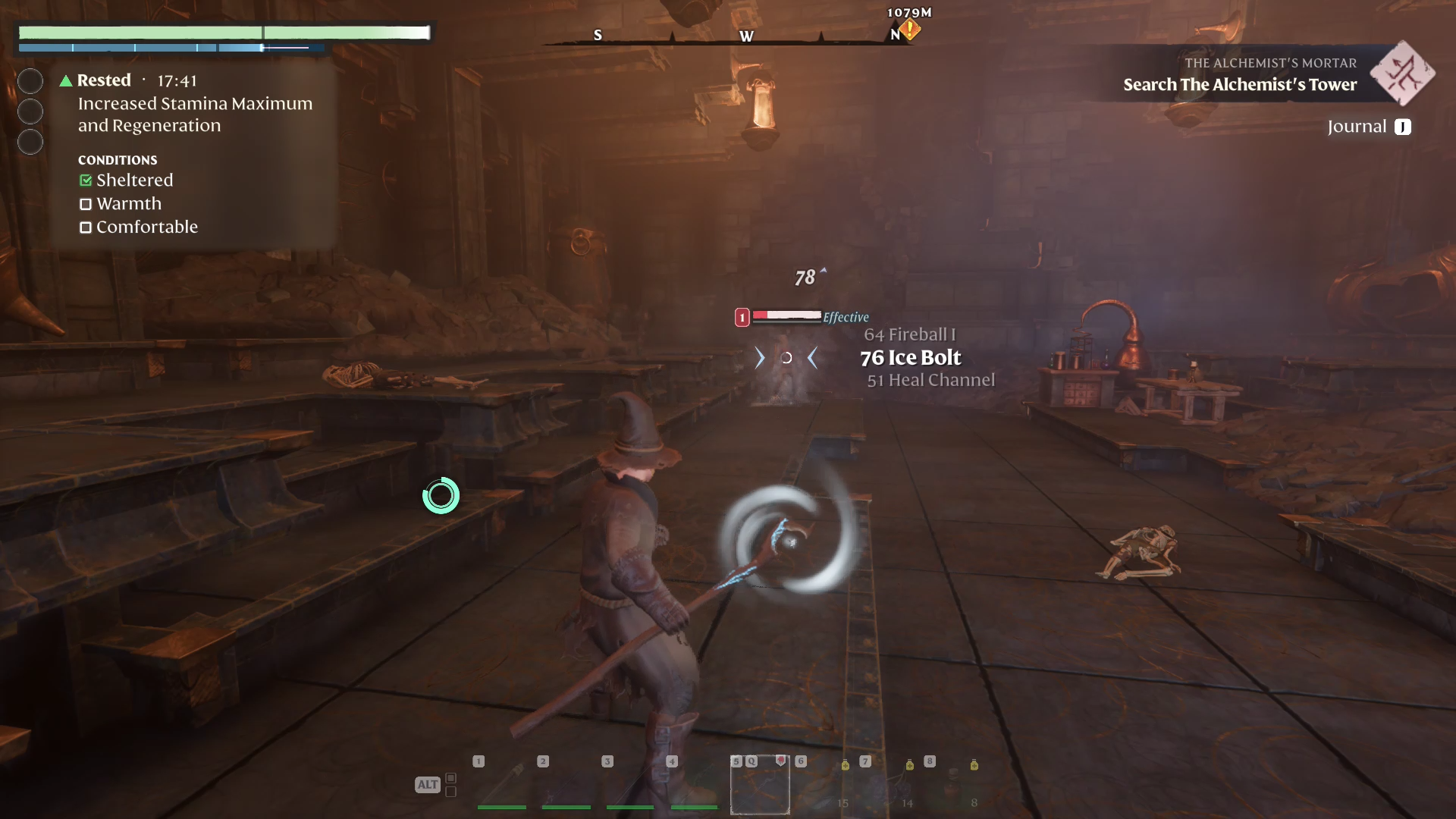
The combat experience isn’t too different between Nightingale and Enshrouded, but some people may prefer one style over the other. Nightingale’s combat tends to involve hordes of enemies you have to fight off at once while Enshrouded’s combat usually sticks to fast-paced one-on-one fights.
Enshrouded has more functional and consistent blocking and dodging mechanics (except the parry). Plus, magic gives the player a big advantage in ranged combat. Overall, the combat mechanics in Enshrouded are faster, smoother, and more polished.
In Nightingale, certain actions like blocking and dodging are available only with specific tools and weapons. This makes combat pretty confusing for beginners. Movement for characters and enemies tends to be slower, which makes combat feel clunky. That said, it’s still fun going into ruins or bastilles to defeat dozens of “the bound” and unlock a new type of realm card.
Nightingale vs Enshrouded: Co-op experience

If you’re looking for a co-op game to play with friends, Enshrouded is definitely the way to go. Nightingale has co-op, as well, but unfortunately it isn’t very functional. There are a lot of barriers to progression early in Nightingale that hinder the co-op experience.
For example, if you unlock the recipe for a simple sewing bench and build one, your co-op friends can’t use it until they also unlock the recipe for it. So, there’s a lot of unnecessary repetition in Nightingale’s co-op gameplay to the point where players are effectively playing single-player in a shared world.
This is less of a problem later in the game when everyone has more gear and recipes unlocked, but the early game is pretty long (it took roughly 8 hours to leave my abeyance realm for the first time). Combat and exploration in Nightingale is definitely more fun with friends, but portal mechanics complicate that as well.
Two players will get portals to different realms even if they use the same combination of realm cards. So, if you and a friend want to go to an astrolabe realm, the same person has to make the portal every time you visit that realm and you have to go together.
In comparison, Enshrouded’s co-op mode (and gameplay) offers more freedom. Bringing NPCs to your base unlocks crafting recipes that everyone can access at the same time and you can use any crafting benches other players make. Exploration also has few progression barriers and those that exist are fairly easy to get past early in the game (i.e. crafting a glider and grappling hook).
Bottom line
Nightingale and Enshrouded are both fun early access games with a lot of similar features, so the choice between them comes down to a couple deal-breaker categories. If you want to play co-op, go with Enshrouded. If you want to focus on single-player exploration, go with Nightingale.
Overall, Enshrouded is a much faster paced game than Nightingale, with fewer barriers to exploration and crafting. It has a brighter, more relaxed tone overall while Nightingale is more of a dark fantasy game. So, if you prefer high fantasy with swords and magic wands, Enshrouded will be more your speed. If you’re looking for dark fantasy with a side of steampunk, Nightingale is the way to go.
More from Laptop Mag
- Enshrouded vs Valheim: Which co-op game is the survival king?
- What is Palworld and how do you play it
- Valheim tips and tricks for beginners and experts

Stevie Bonifield is a freelance tech journalist who has written for PC Gamer, Tom's Guide, and Laptop Mag on everything from gaming to smartwatches. Outside of writing, Stevie loves indie games, TTRPGs, and building way too many custom keyboards.









